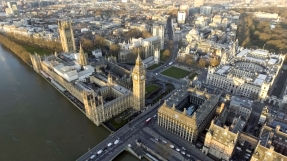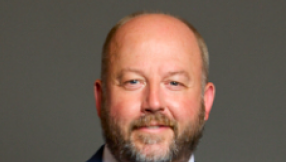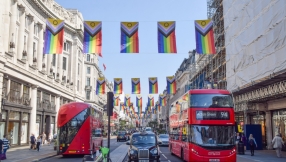Celebrate 50th Anniversary of 'Billy Graham Crusade' in London
The first crusade was held in London's Harringay arena, 1954, under the sponsorship of the British Evangelical Alliance. The Evangelical Alliance took the lead in assuming sponsorship of the crusade, and in the developing of an executive Committee.
The crusade was first suggested when a group of interested and concerned British Christians met in a small Howard Hotel in Norfolk Street, 1952. They discussed the possibility of a Billy Graham crusade in London. Only two men who took part in that meeting are still alive today -- John Cordle, now in his 90's and living in retirement in Salisbury; and Dr. Jerry Beavan, now 85 years of age, relocated to Southern California and from time to time.
"I certainly agree that it is appropriate to observe the 50th anniversary of the Harringay crusade, because this was the crusade that reshaped international evangelism in the 20th century. Prior to Harringay, Billy Graham was an itinerant evangelist, conducting mostly month long crusades in large cities across America. After Harringay Billy Graham was an international evangelist, traveling the entire world, and accomplishing more in proclaiming the Gospel of Jesus Christ than any single individual in history." Dr. Jerry Beavan said.
"First we have to solve when and where the crusade should be. We decided to hold it on March, 1954, two years after our first committee meeting. But no suitable meeting facility came immediately to mind. Then the American industrialist, R.G. LeTourneau, an active Christian layman, came up with a suggestion that he would design a portable arena seating 12,000 persons, made entirely of aluminum. Initial investigation resulted in a possible site on London Embankment."
"But one day, after we had thought about and discarded possible sites, we came across a greyhound racing track called Harringay, where there was an arena which would seat approximately 12,000 persons. We pursued the idea, and found that the arena would be available for a three month period beginning March 1st 1954. In due course the premises were put under lease, and we moved forward with definite plans for what we called "The Greater London Crusade."
It was the longest crusade that Billy Graham had ever attempted. In addition to the nightly meetings there were many special events, such as rallies in Hyde Park, in Trafalgar Square, in various US military bases near London, an outdoor rally for youngsters featuring Roy Rogers and Dale Evans, invitation to preach before Her Majesty, the Queen in the chapel at Windsor Castle -- all climaxed by the final meeting in Wembley Stadium with 120,000 in attendance and another 67,000 in the nearby White City Stadium.
Following Harringay was a tour of Western Europe with rallies in 8 major cities, including one at the "Hitler Stadium" in Berlin. In 1955 it returned to Great Britain for the All Scotland Crusade in Glasgow, followed by a full week in London with meetings every night in Wembley stadium -- and then another visit to more cities in Western Europe, including a 5 day crusade in Paris. Regardless of the country or the language, many attendants always showed up, and there were recorded more than two million persons in attendance overall.
"Harringay was not only a turning point in the life and ministry of Billy Graham, but also a turning point in the concept of international evangelism. Thus this 50th anniversary is an important one to observe. And it is important to note that 50 years after those momentous days at Harringay, Billy Graham is still actively preaching the Gospel to the extent that his physical condition permits." Dr. Jerry Beavan said.
Evangelist Billy Graham has preached the Gospel to more people in live audiences than anyone else in history -- over 210 million people in more than 185 countries and territories -- through various meetings. Every evangelistic crusade conducted by Mr. Graham has been the result of a cooperative effort involving the evangelist, his team, and many local Christians and churches.













